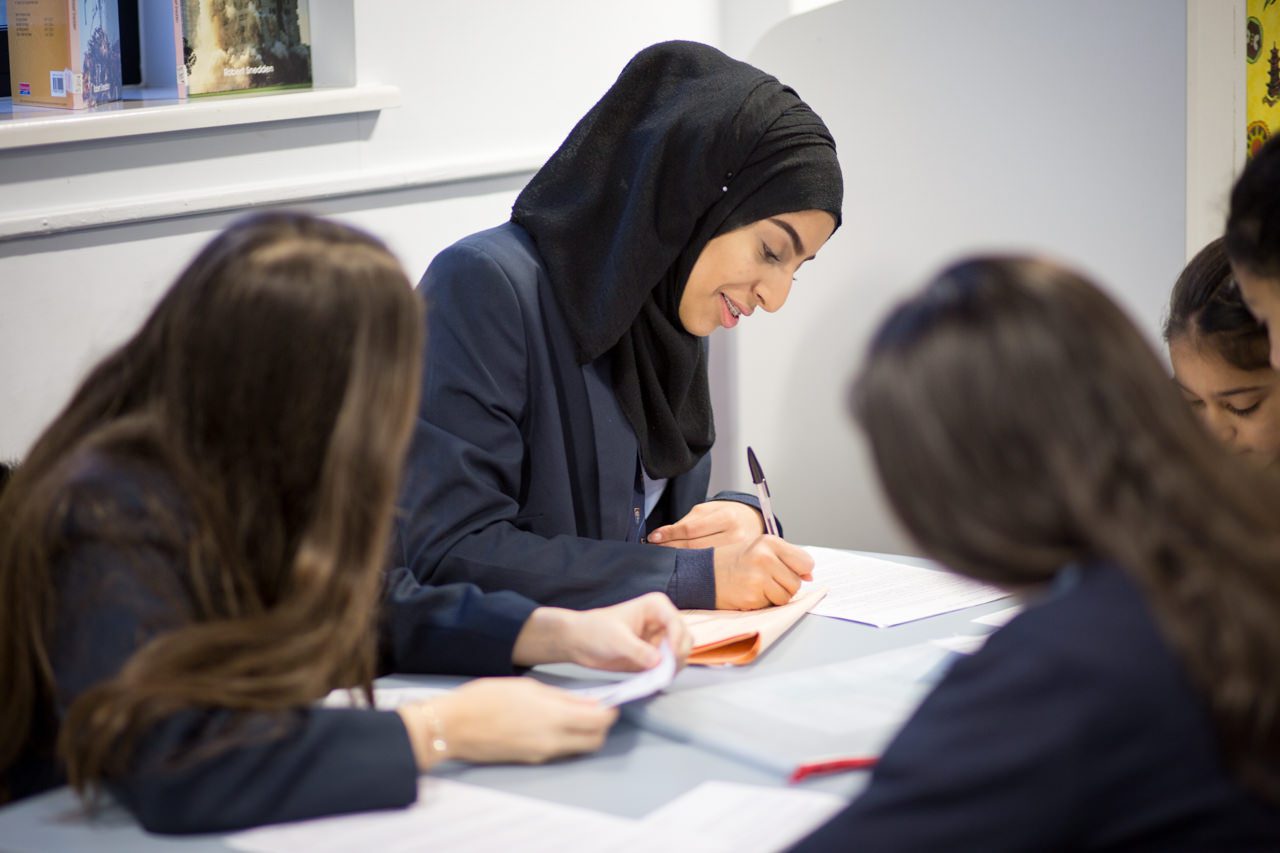The Bluecoat Wollaton Academy Geography curriculum reflects our belief that a sound understanding of geography is a vital for young people, enabling them to engage with and reflect upon the rapidly changing world. The study of Geography offers students the chance to explore their surroundings and develop their decision-making skills whilst feeling a sense of wonder about the natural environment.
The curriculum we have designed builds and extends from the national curriculum. Throughout their study of Geography at Bluecoat Wollaton, Students will develop an awareness of a variety of spaces and places, ranging in scale to include UK, and our own city of Nottingham, through to world geography including earthquakes in Haiti and urban inequality in Lagos. Students will assess the challenges taking place in both physical environments – including managing river flooding, and human environments – such as meeting our UK energy need, all while recognising the importance of adapting to these sustainably.
Students will leave Bluecoat Wollaton with an ability to recognise the interdependent nature of geography and understand that no geographical concept is learned in isolation. Underpinning this is the design of our curriculum, which has an interleaved approach, weaving both human and physical content with key geographical concepts, such as the formation of landforms. Our core concepts are revisited a number of times through the curriculum, but through the lens of a new environment, so students build their knowledge and apply prior learning to enhance their geographical understanding over time. Through investigation and case studies, both inside and outside the classroom, the curriculum cultivates students’ geographical curiosity. There are a number of fieldwork opportunities including coastal and urban investigations for students to experience. Not only this, but as students progress on their geographical journey, the curriculum encourages them to recognise their role in current environmental issues, allowing them to become more conscience of their own social responsibility.
AQA GCSE Geography (8035)
Students study the AQA course and are assessed in three exams at the end of year 11. These three papers are:
Living with the physical environment (35%)
- 3.1.1 Section A: The challenge of natural hazards
- 3.1.2 Section B: The living world
- 3.1.3 Section C: Physical landscapes in the UK
- 3.4 Geographical skills
Challenges in the human environment (35%)
- 3.2.1 Section A: Urban issues and challenges
- 3.2.2 Section B: The changing economic world
- 3.2.3 Section C: The challenge of resource management
- 3.4 Geographical skills
Geographical applications and skills (30%)
- 3.3.1 Section A: Issue evaluation
- 3.3.2 Section B: Fieldwork
- 3.4 Geographical skills
Paper 1: Living with the physical environment (35%)
- Written exam: 1 hour 30 minutes
- 88 marks (including 3 marks for spelling, punctuation, grammar and specialist terminology)
- Section A: answer all questions (33 marks)
- Section B: answer all questions (25 marks)
- Section C: answer any two questions from questions 3, 4 and 5 (30 marks)
- Question types: multiple-choice, short answer, levels of response, extended prose
Paper 2: Challenges in the human environment (35%)
- Written exam: 1 hour 30 minutes
- 88 marks (including 3 marks for spelling, punctuation, grammar and specialist terminology)
- Section A: answer all questions (33 marks)
- Section B: answer all questions (30 marks)
- Section C: answer question 3 and one from questions 4, 5 or 6 (25 marks)
- Question types: multiple-choice, short answer, levels of response, extended prose
Paper 3: Geographical applications (30%)
- Written exam: 1 hour 15 minutes
- 76 marks (including 6 marks for spelling, punctuation, grammar and specialist terminology)
- Pre-release resources booklet made available 12 weeks before Paper 3 exam
- Section A: answer all questions (37 marks)
- Section B: answer all questions (39 marks)
- Question types: multiple-choice, short answer, levels of response, extended prose
Resources
AQA GCSE Geography Specification
GCSE Google Classroom: xfs3gxq
Seneca Learning:
Y7 Seneca class code: e8u0mex3hb
Y8 Seneca class code: vkutkpqree
GCSE Seneca class code: 2jp3re615z
BBC Bitesize

Careers Links
The study of Geography provides numerous transferable employability skills that can be applied to a vast range of different career paths. Click here for examples of some of the employability skills Geography can provide.
- Where can Geography take you?
- Careers using Geography
- 5 Awesome Careers in Geography
- Careers using Environmental Science
- How to become a landscape assistant: Florence's story
- GBBO's Alice Fevronia: How to become a secondary school Geography teacher
- How to set up a social enterprise: Alison's story
- How to become an apprentice countryside officer: Amelia's story
- How to become a volcano vlogger and guide: Chris' story
- How to become a farmer: Aimee's story
- How to become a catchment officer: Liam's story
- How to become a farming union policy manager: Jenny's story
- How to become a science officer: Lauren's story
- How to become an ecologist: Gabrielle's story
- How to become a conservation apprentice: Lorna's story
- How to become a conservation trainee: Liberty's story
- MYPATH: JOB OF THE WEEK - EPISODE #004 - DISASTER MANAGER
- MYPATH: JOB OF THE WEEK - EPISODE #022 - WELLSITE GEOLOGIST
- MYPATH: JOB OF THE WEEK - EPISODE #032 - GEOSCIENTIST
Importance of green careers
The UK government aims to reach net zero in all sectors of the economy by 2050. Net zero means the amount of greenhouse gas we take out of the environment is the same as the amount we produce. You can read more about the Net Zero Strategy.
Many jobs can make a positive impact in different ways. Any career that helps the UK work towards net zero could be considered a green career.
You can also learn new skills in different industries whilst helping to protect the future of the planet.
You could work in an industry that directly tackles climate change such as environment, science and engineering. Here are some examples of green careers in these industries.
Countryside officers give advice on how to manage, protect and improve the rural environment. You could conduct surveys, write reports and support local environmental events.
Corporate responsibility and sustainability practitioners make sure companies work in an ethical way. You could create a sustainability strategy and make sure companies do not cause harm to the environment.
Recycling engagement officers run local recycling and sustainability schemes. You could also promote recycling in the community and give advice on waste management.
Wind turbine technicians maintain and repair wind farm turbines. You could work in rural areas or at sea to install, test and fix wind turbines.

